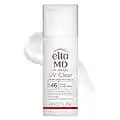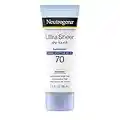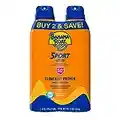Introduction
The importance of sunscreen is a message that echoes throughout the skincare world. The right sunscreen not only shields your skin from harmful UV rays, but also plays a pivotal role in the prevention of skin aging and skin cancer. However, with so many options available on the market, choosing the right sunscreen can seem daunting. This guide will help you navigate the sunscreen aisle with confidence.
Understanding the Basics
Before we delve into the specifics, let's cover some basics. Sunscreen is a topical product that absorbs, reflects, or scatters sunlight to protect your skin. The two types of UV rays that reach the earth's surface are UVA and UVB. UVA rays penetrate deep into the skin and contribute to premature aging, while UVB rays burn the skin and can lead to skin cancer. SPF, or Sun Protection Factor, indicates how well a sunscreen protects against UVB rays.
Types of Sunscreen
There are two main types of sunscreens: physical (or mineral) and chemical.
Physical sunscreens contain active mineral ingredients, such as zinc oxide or titanium dioxide, which work by sitting on top of the skin to deflect and scatter damaging UV rays.
Chemical sunscreens, on the other hand, contain organic (carbon-based) compounds, such as oxybenzone, octinoxate, octisalate, and avobenzone, which create a chemical reaction and work by changing UV rays into heat, then releasing that heat from the skin.
Each type has its pros and cons, and the choice often comes down to personal preference and skin type.
How to Choose the Right Sunscreen for Your Skin Type
Oily Skin
If you have oily skin, opt for sunscreens that are oil-free and non-comedogenic, meaning they won't clog your pores. Look for terms like "lightweight," "matte finish," or "oil-control" on the packaging.
Dry Skin
For dry skin, cream-based sunscreens with hydrating ingredients like hyaluronic acid and ceramides are your best bet. Avoid sunscreens with high alcohol content, as they can be drying.
Sensitive Skin
Those with sensitive skin should lean towards physical sunscreens, as they're less likely to cause skin irritation. Also, look for sunscreens labeled as "fragrance-free" and "hypoallergenic."
Darker Skin Tones
While all skin tones need protection from UV rays, people with darker skin often struggle with the white cast left by some sunscreens, especially physical ones. Look for "sheer" or "invisible" formulas, or consider tinted sunscreens.
Special Considerations
Remember, even water-resistant sunscreens can lose their effectiveness after 40 to 80 minutes in the water. Always reapply after swimming, sweating, or toweling off. Don't forget that UV rays can still reach your skin on cloudy days and during winter. Hence, daily application is recommended, regardless of the weather.
Myths and Misconceptions
Higher SPF means I don’t need to reapply as often
Incorrect. Regardless of the SPF, sunscreens should be reapplied every two hours, or after swimming or sweating.
Conclusion
Choosing the right sunscreen involves understanding your skin type, being aware of what to look for, and debunking common myths. With this guide, you can confidently protect your skin from the sun’s harmful rays.
FAQs
**Q: Can I just use makeup with SPF instead of sunscreen?**
A: The short answer is no. Makeup with SPF doesn’t provide adequate sun protection on its own based on the amount of makeup people typically apply. It's recommended to use a broad-spectrum sunscreen under your makeup for optimal protection1.
Q: Is sunscreen necessary in winter or on cloudy days?
A: Yes, even on cloudy days or during winter, up to 80% of UV rays can still reach your skin. Therefore, it's crucial to apply sunscreen daily, regardless of the weather.
Q: How often should I reapply sunscreen?
A: As a general rule, you should reapply sunscreen every two hours. However, if you're swimming or sweating, it's recommended to reapply immediately after you dry off.
Q: What SPF is best for daily use?
A: Dermatologists typically recommend using a sunscreen with an SPF of at least 30, which blocks 97 percent of the sun's UVB rays. However, no sunscreen can block 100% of the sun's UVB rays, so it's important to also take other sun protection measures, like wearing protective clothing and seeking shade.
Q: Can I use sunscreen on my baby?
A: Sunscreen is generally safe for babies over six months. For infants under six months, it's best to avoid sun exposure and protect them with clothing and hats. However, you should always consult with a healthcare professional for advice specific to your child's needs.
Remember, the information provided in this blog post should not be used as a substitute for professional medical advice, diagnosis, or treatment. Always seek the advice of your healthcare provider with any questions you may have regarding a medical condition or treatment.



